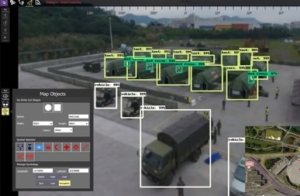A Method for Ethical AI in Defence
Today the Australian Department of Defence released ‘A Method for Ethical AI in Defence’ an outcome of a workshop in 2019 attended by over 100 representatives from Defence, other Australian government agencies, industry, academia, international organisations and media. The workshop was facilitated by Defence Science & Technology Group, RAAF Plan Jericho and Trusted Autonomous Systems Defence Cooperative Research Centre. Defence note that the report outlines a pragmatic ethical methodology for communication between software engineers, integrators and operators during the development and operation of Artificial Intelligence (AI) projects in Defence.
Trusted Autonomous Systems CEO Professor Jason Scholz said ”Trusted Autonomous Systems are very pleased to partner with Defence on this critical issue of ethics in AI. Ethics is a fundamental consideration across the game-changing Projects that TAS are bringing together with Defence, Industry and Research Institutions.”
AI and human machine teaming will be a key capability in the future of Australian Defence systems. Chief Defence Scientist Tanya Monro notes “…AI technologies offer many benefits such as saving lives by removing humans from high-threat environments and improving Australian advantage by providing more in-depth and faster situational awareness”.
Air Vice-Marshal Cath Roberts, Head of Air Force Capability said “artificial intelligence and human-machine teaming will play a pivotal role for air and space power into the future… We need to ensure that ethical, moral and legal issues are resolved at the same pace as the technology is developed. This paper is useful in suggesting consideration of ethical issues that may arise to ensure responsibility for AI systems within traceable systems of control”. These comments are equally important to the other service arms.
In 2019, the Trusted Autonomous Systems Defence CRC (TASDCRC) commenced a six-year Programme on the Ethics and Law of Trusted Autonomous Systems valued at $9M. Over the past two years the activity has conducted workshops, engagements and consultation with participants and stakeholders of the Centre, contributing to ADF strategy, producing diverse publications and influencing the design of trusted autonomous systems such as the game-changing Athena AI ethical and legal decision support system.
From 2021 the Ethics Uplift Program (EUP) of the TASDCRC will offer ongoing assistance to Centre participants through consultation, advice and policy development, supported by case analysis, education and enculturation
The Trusted Autonomous Systems affiliate researchers and employees participate in a wide range of events in consideration of the ethics and law of RAS-AI such as ICRC, UNIDIR SIPRI, and NATO.
TASDCRC is a non-government participant in the United Nations (UN) Group of Governmental Experts (GGE) on Lethal Autonomous Systems (LAWS) to ensure the development of autonomous systems accord with ethical principles, the laws of armed conflict (LOAC) and in abidance with Article 36 weapons reviews.
The Defence Media Release reinforced that “The ethics of AI and autonomous systems is an ongoing priority and Defence is committed to developing, communicating, applying and evolving ethical AI frameworks”. Trusted Autonomous Systems are a partner to Defence on that journey. More details at https://www.dst.defence.gov.au/publication/method-ethical-ai-defence


